IS IT SAFE for young athletes to lift weights? And if so, at what age should they start and what should they do? These are questions that are debated regularly and opinion seems to differ considerably.

Certainly, it’s a hugely controversial topic and yet several international review papers written by world-leading paediatricians, professors, and coaches have been published over the last five years (Lloyd et al, 2014; Bergeron et al, 2015), provide a clear understanding about good practice.
Importantly these papers have been endorsed by the International Olympic Committee, the American Academy of Paediatrics, and numerous sports medicine associations. Despite a consensus in the scientific community, education concerning appropriate strength training for young athletes is still lacking. Within the athletics coaching community, there are many misconceptions about strength training and my view is they may be doing the sport more harm than good in terms of the long-term development of young athletes.
So, what are the myths, and what does scientific evidence tell us is the correct way to introduce strength training exercises with young athletes?
Myth 1: Lifting weights before full maturation damages bones
There is no scientific evidence that shows lifting weights at any age causes growth to be adversely affected, damage to growth plates, or young athletes to be at an increased risk of skeletal injury. In fact, the opposite is true. During childhood, skeletal development follows a fairly linear pattern until the growth spurt, which occurs between 10-15 years old in girls and 12-16 years old in boys.
During rapid periods of growth bones become weaker, therefore a training stimulus that increases bone mineral density, such as weight training or plyometrics, provides huge benefits. Gains in bone strength are also much greater during adolescence than adulthood. Therefore, a failure to maximise bone mineral accrual during younger years has been shown to leave individuals more vulnerable to bone health-related conditions such as stress fractures and osteoporosis.
This story is from the {{IssueName}} edition of {{MagazineName}}.
Start your 7-day Magzter GOLD free trial to access thousands of curated premium stories, and 9,000+ magazines and newspapers.
Already a subscriber ? Sign In
This story is from the {{IssueName}} edition of {{MagazineName}}.
Start your 7-day Magzter GOLD free trial to access thousands of curated premium stories, and 9,000+ magazines and newspapers.
Already a subscriber? Sign In
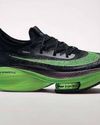
Carbon Footprint
You'd have had to have been running on a different planet to miss all the recent debate about carbon-plated shoes. The talk of bans and performance enhancement has been so widespread that even non-runners are asking their running friends about the potentially magical footwear.
Trail time
WHEN looking for a trail or off-road running shoe, it’s often all about the grip. However, given that no two paths are the same, careful consideration is required. What’s the terrain like where you’ll wear the shoes the most? If you’ll be negotiating soft, wet and muddy conditions then look for deeper lugs. For tackling gravel tracks and forest trails then more evenly spaced lugs will work better. When it comes to cushioning, consider how hard the ground will be; if it’s soft then you’ll be fine in low-profile shoes, but on those firmer tracks reasonable cushioning will be called for.
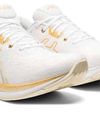
Stay neutral
EVOLVING every year, if not month, neutral cushioned shoes are seeing developments in cushioning materials and dynamics at a pace which is nothing short of astonishing. The latest models feature new polymers in the midsoles to give them a cushioned feel while at the same time keeping their weight to a minimum. Give them a spin and choose the most comfortable for mile after mile of shock absorbing running.
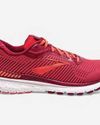
Support network
WHEN it comes to ‘over-pronation’, a common question is ‘how much is over?’. With no hard and fast rules, it’s best to choose a shoe that instinctively feels right. Gait analysis can often assist in helping you make this choice and your specialist running store is always a good place to start if in doubt. To help you make that choice, here’s a selection of some of the best ‘support’ shoes around.
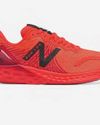
Need for speed
THE racing shoe segment of the market is becoming somewhat split. This is partially due to the rise of carbon-plated footwear but also the fact that many shoes are becoming much lighter. Here we take a look at some of the leading contenders to toe the line in.
Gadget show
WITH technological products to enhance every area of life, running is now no different. From headphones to treadmills, the devices to aid performance and recovery are endless. Here we take a look at some of the latest gadgets and gizmos to enhance your training.
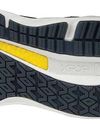
What's in a shoe?
We bust some of the jargon around footwear

How To Prime Your Immunity
Taking steps to shore your body’s defences has never been more important. Here’s how to do it, says Peta Bee

English Schools Survival At Stake
Covid-19 could lead to ESAA losing thousands this summer

Covid-19: Athletics Events Are Wiped Out
Unprecedented calendar changes due to Covid-19